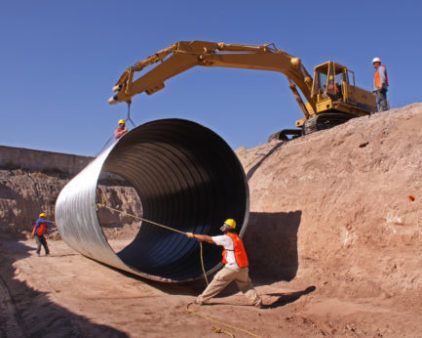New laws target old CA problem: Workers’ comp fraud
 Critics of a California workers’ compensation system that is both among the nation’s costliest and not particularly good at providing care to injured employees are enjoying two triumphs.
Critics of a California workers’ compensation system that is both among the nation’s costliest and not particularly good at providing care to injured employees are enjoying two triumphs.
Gov. Jerry Brown recently signed Assembly Bill 1244, a bill introduced by Assembly members Adam Gray, D-Merced, and Tom Daly, D-Anaheim, and approved 79-0 by the Senate and 39-0 by the Assembly.
It would ban medical service providers from participating in the state-funded workers’ compensation program if they’d ever been convicted of a felony or of a misdemeanor involving fraud or abuse in the state program or in Medi-Cal or Medicare. It also bans those suspended from Medicare or Medicaid by federal authorities for fraud or abuse and those who have “lost or surrendered a license, certificate or approval to provide health care.”
Brown also signed Senate Bill 1160 by state Sen. Tony Mendoza, D-Artesia, which addresses a tactic used by health care providers to force payment from client companies if insurers reject claims they consider suspect or invalid: placing liens on their property. The measure requires physicians and others providing care to cite the specific legal authority that allows them to place liens, not just cite an unpaid debt. It also limits selling billing rights for uncollected claims to collection companies. Finally, it freezes collection of liens by providers facing charges of medical fraud.
Mendoza’s bill ran into Republican criticism in the Senate, where some saw it as too intrusive. But it passed 26-12 and was approved 80-0 in the Assembly.
New policy fights not as charged as before
Past fights about workers’ compensation fixes in Sacramento were far more contentious.
The most memorable and consequential came early in Arnold Schwarzenegger’s seven years as governor. His first major legislative victory after taking office in November 2003 came in May 2004 when he signed a package of legislation that allowed employers to limit which doctors were allowed to treat those who had or said they had workplace-related injuries. The new laws also made it more difficult to make claims of permanent disability; reduced payments for permanent disabilities; and put limits on how many times claimants could use employer-paid rehabilitation services such as physical therapy.
Businesses paid a record $21.4 billion in premiums in 2003, according to a Sacramento Bee report. That dropped by more than half in coming years as reforms paid off, but by 2015 had rebounded to $17.6 billion.
The 2003-04 fight was so pitched because some unions and Democrats believed Schwarzenegger was actually trying to knock holes in the safety net for injured workers, not just correct abuses.
More recent policy debates have focused on how medical care providers continue to keep pushing the envelope with their billing practices, some of which are obvious frauds and others of which are more nuanced.
Less sophisticated companies targeted
In a recent interview with Kaiser Health News, the director of the state Department of Industrial Relations, which oversees workers’ compensation, noted that scams are far more likely to be used with less sophisticated companies.
“I think both abuses and fraudulent activities prey on the most vulnerable populations and we’re hopeful that appropriate treatment will be provided to workers when needed,” Christine Baker said.
Such companies often have relatively small fiscal reserves. Kaiser’s story told how a family-run Los Angeles janitorial service that employed 350 had to close after it was hit with the types of liens that are now illegal.
Chris Reed
Chris Reed is a regular contributor to Cal Watchdog. Reed is an editorial writer for U-T San Diego. Before joining the U-T in July 2005, he was the opinion-page columns editor and wrote the featured weekly Unspin column for The Orange County Register. Reed was on the national board of the Association of Opinion Page Editors from 2003-2005. From 2000 to 2005, Reed made more than 100 appearances as a featured news analyst on Los Angeles-area National Public Radio affiliate KPCC-FM. From 1990 to 1998, Reed was an editor, metro columnist and film critic at the Inland Valley Daily Bulletin in Ontario. Reed has a political science degree from the University of Hawaii (Hilo campus), where he edited the student newspaper, the Vulcan News, his senior year. He is on Twitter: @chrisreed99.
Related Articles
Gun controllers hold up Communist China as a model
Dec. 20, 2012 By John Seiler The horrible killings in Newtown have brought to the fore the hidden totalitarian beliefs
Killer Cop's Patron Backs Brown
Steven Greenhut: Attorney General Jerry Brown, despite his history of taking anti-establishment political positions, has been strangely silent on issues
CA Legislature attacking gun rights
April 2, 2013 By John Seiler If there’s one thing that might get me finally to move away from the


